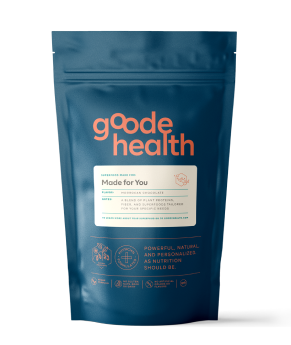Weight loss
As a Registered Dietitian, people frequently ask me what I think of diets like keto and intermittent fasting for weight loss. When I ask if they think they could follow the diet consistently for the rest of their life, they usually say “probably not.” The truth is most fad diets fail in the long run. They’re too restrictive, they deprive your body of essential nutrients, and they’re nearly impossible to stick to. Don’t get me wrong - I understand some of the appeal. Most of my clients who want to lose weight are extremely eager to get the weight off as quickly as possible. They want to strike while the iron is hot and take action while their motivation is strong. They believe that restrictive guidelines and willpower will be the keys to their success.
Have you ever heard the saying “the flame that burns twice as bright burns half as long?” In my experience, this is true for weight loss efforts as well. Someone who chooses to follow a restrictive diet that isn’t compatible with their lifestyle is likely to start feeling burnt out at some point. Slip-ups eventually happen, and then they beat themselves up because they believe they have “failed”. It becomes a vicious cycle of perfectionism and shame.
Consistency and sustainability are the two most important factors when it comes to losing weight and keeping it off. In this guide, we’ll explore methods to help you safely achieve sustainable weight loss without shame and restriction.
What are calories and do they matter for weight loss?
Calories are like fuel for your body. When you eat, your body takes the calories from food and turns them into energy. If you regularly eat MORE calories than your body burns, the excess is stored as fat. Alternatively, you will lose weight if you consistently eat LESS than your body burns.
A simple way to estimate how many calories you need is to multiply your current weight (in pounds) by 15. This is the minimum number of calories needed per day to maintain your current weight if you are moderately active, meaning that you participate in at least 30 minutes of exercise daily. To lose roughly 1 pound per week - a rate that experts consider safe - you should subtract 500 calories from that number.
Know Your Macronutrients: Protein, Fat, and Carbs
It’s important to keep in mind that not all calories are created equal. 2000 calories worth of ice cream is going to have a different effect on your body than 2000 calories from fish, veggies, and fruit. This is why I teach my patients how to balance macronutrients (aka “macros”) at their meals. The three primary macronutrients are protein, fat, and carbohydrates. All of the calories you eat come from macronutrients.
Protein
Protein plays a critical role in your body’s growth and repair processes. It has a higher thermogenic effect than other macronutrients, which means that it burns slightly more calories during digestion than fat and carbohydrates. It also promotes fullness and satiety by decreasing the hunger hormone ghrelin and increasing satiety hormones. If you constantly feel hungry after meals, you might not be eating enough protein.
Fat
Fat is essential for cell growth and hormone production. It also helps your body absorb certain vitamins and minerals. Contrary to popular belief, eating fat does NOT make you fat. Olive oil, nuts, and avocado are examples of healthy fats.
Carbohydrates
Carbohydrates are the primary source of energy for your brain and body. They are found in grains, legumes, fruits and veggies. Your body breaks down carbohydrates into glucose to provide fuel for your cells. Your brain relies on glucose for energy. Without it, it’s difficult to function at your best. If you have brain fog and feel tired all of the time, you might not be eating enough carbohydrates.
There are two categories of carbohydrates: Complex and Simple
“Complex carbohydrates” are high in fiber, a type of carbohydrate that the body cannot digest. Fiber is found in whole grains, legumes, fruits, and vegetables. It helps add volume to your meals without a lot of additional calories.
Choose complex carbohydrates more often than simple carbs (e.g. white rice, potatoes, white bread, sweets, etc) to help balance your blood sugars and provide you with sustained energy throughout the day.
Balancing Your Plate for Weight Loss
A balanced meal should make you feel full for 3-5 hours and provide your body with sustained energy. Using your plate as a visual cue can help you ensure that you are getting the right balance of protein, fat, and carbs.
I recommend filling ½ of your plate with non-starchy vegetables and fruits, ¼ of your plate with whole grains or starches, and ¼ of your plate with protein. Try to include a serving of healthy fats with each meal, too. One serving should be about the size of your thumb.
Weight Loss Risks
Rapid Weight Loss Causes Muscle Loss
You may have heard the advice that weight loss can be achieved by simply eating less and moving more. This advice can backfire if taken to an extreme, though. If you are losing more than 2 pounds per week, you are most likely losing muscle mass, which can have negative effects on your metabolism and overall health.
Your metabolic rate (how many calories you burn at rest) is influenced by the amount of muscle you have. People who have more muscle naturally burn more calories. If you eat too little and exercise too much, your body will break down your muscles for fuel. Reduced muscle mass means fewer calories are burned at rest – aka a slower metabolism. Many people find themselves in a predicament where they constantly need to eat less and less in order to keep the weight off. The body’s metabolic rate naturally slows down with age, too, which further contributes to the problem.
Restrictive Dieting Can Lead to Micronutrient Deficiencies
Micronutrients are important vitamins and minerals that your body needs in order to function properly. Medical conditions like anemia and osteoporosis can develop as a result of being deficient in key nutrients. It’s important to include lots of colorful fruits and vegetables in your diet to make sure you are getting a variety of micronutrients. Vegans and vegetarians should consult a registered dietitian or physician to discuss the best way to supplement key nutrients that may be missing from their diet
Micronutrients and Weight Loss
Unlike macronutrients, micronutrients don’t have any calories. Micronutrient deficiencies can lead to something called “hidden hunger” which is when your body thinks it is starving even though you’re eating plenty of calories. Hidden hunger causes food cravings and makes it difficult for you to feel full and satiated after meals.
Goode Health™ features our CORE8™ Micronutrients Blend packaged with fiber and protein to increase satisfaction and optimize absorption. If you’re trying to lose weight, we recommend replacing one meal per day with 2 scoops of Goode Health mixed with 16 oz water (I recommend choosing your lowest protein meal for this. For most people, it’s breakfast). Your other two meals should come from regular food.
__________________________________________________________________________
Did you know we offer an e-book to help simplify healthy meal planning for only $9.99?!







